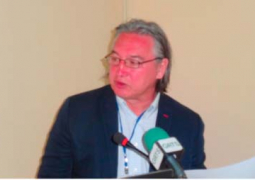From
With the winds of change blowing across the continent, our soldiers have been behaving themselves and confining themselves to the barracks.
Those of them who felt that the barracks was too restraining had to exchange their uniform for civilian clothes. They took to the civilian culture with gusto, so much so that soldiers who had never had any training in practical politics aspired to and even became the men in the driving seat of their respective countries.
This then raised hopes that democracy was taking root on the continent, as the men in khaki would no longer have justification for governance under martial law.
Where there were exceptions, international pressures made them to announce a short transition period to a democratically-elected government. Some of these transition periods lasted for just two years.
Despite all the coups and counter coups over the years, especially in
But junta leader Captain Amadou Sanogo of
Since that black Thursday, when democracy was cut short in
We condemn any violent overthrow of an elected government. The trite accusation of corruption and inefficiency always played up by the soldiers, as justification for taking over power, has proved to be a bunch of bulls.
In countries where the military have stayed for any length of time, corruption has been just as rife, if not worse.
Democracy, as we know it, offers the necessary paradigms for a just and prosperous society.
Therefore, political differences should be sorted out through dialogue, compromise and reconciliation, not through the barrel of the gun.
No matter how unpopular, despotic, inept, corrupt, wanting in vision a government or a leader may be, resorting to the barrel of a gun to overturn that system is undemocratic and unacceptable.
Those who have staged a coup or planning to stage one must be made to understand that the wish of the people is supreme, and should always be allowed to assert itself.
This latest development in
But more important, incumbent leaders should see what is happening as reminder of their responsibility to the people.
A government that is genuinely committed to the needs and aspirations of the people is unlikely to be toppled, as the people themselves will chase out the military adventurers.
So the best safeguard against a putsch is good governance marked by accountability, transparency, respect for the rule of law, freedom of expression and responsibility.
“There are dragons in the wings of the World.”
Cormac MacCarthy



